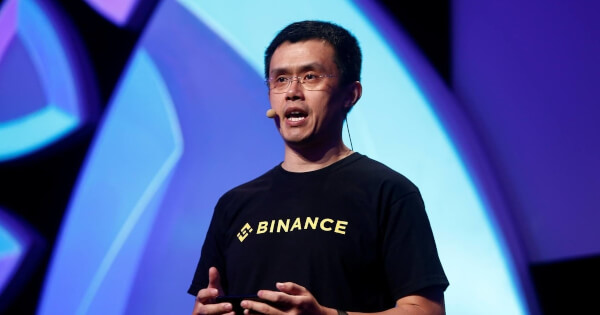Binance CEO CZ Denies that US Exchange Arm Was Created to Distract Regulators
A leaked document obtained by Forbes has indicated that Binance exchange’s US arm was set up to avoid regulation—a claim that CEO Changpeng Zhao (CZ) vehemently denies.

Changpeng Zhao, CEO of Binance, is denying all allegations that the crypto exchange’s United States arm was set up to avoid regulation and profit from investors.
According to a report from Forbes on Oct.29, the leading news outlet obtained a leaked document which detailed Binance’s strategy for its US operations. The leaked presentation contained in the document outlines that the crypto exchange has intended to set up Binance.US as a “Tai Chi entity” to shield its main operations from regulatory enforcement.
Castillo said the Tai Chi document was allegedly created by a former Binance employee named Harry Zhou.
According to Michael Castillo, the author of the Forbes article:
“While the then-unnamed entity set up operations in the United States to distract regulators with feigned interest in compliance, measures would be put in place to move revenue in the form of licensing fees and more to the parent company, Binance […] All the while, potential customers would be taught how to evade geographic restrictions while technological work-arounds were put in place.”
Castillo said the Tai Chi document was allegedly created by a former Binance employee named Harry Zhou.
Less than an hour after the Forbes report was published, CZ took to Twitter to deny and explain away the report. The Binance CEO responded:
“FUD. The statements and accusations in the article are incorrect. The whole article hinges on a 3rd party document. The said document was not produced by a @Binance employee (current or ex). Anyone can produce a “strategy document”, but it does not mean Binance follows them.”
In a series of Tweets, CZ argued that Binance has always operated within the boundaries of the law, and cited the fact that Binance has opened exchanges across the globe and said, “with proper licensing and applications."
The Binance CEO said, “We do not acknowledge the alleged document.” He later added that Binance.US “together with our local partners' actions of getting registered, licensed and regulated in multiple jurisdictions prove our commitment in doing things right."
Despite the CZ’s strong denial of the allegations, the Forbes report appears quite damning and connects the dots between the Tai Chi document from 2018 with the growth of Binance.US which launched in 2019 and now operates in over 40 states.
According to the Forbes article, the Tai Chi document outlined a strategy for the yet to be launched US Binance entity to participate in the Department of Homeland Security Cornerstone Program—which detects weaknesses in financial systems—to distract the U.S. Treasury Department’s Financial Crime Enforcement Network, or FinCEN, and Office of Foreign Assets Control, or OFAC, the Securities and Exchange Commission, or SEC, the Commodity Futures Trading Commission, or CFTC, and the New York Department of Financial Services, or NYDFS.
A representative of the Department of Homeland Security reportedly confirmed with Forbes that Binance.US did participate in the Cornerstone program, as a standard part of the process of becoming a Money Service Business, but declined to comment further.
A part of the leaked Tai Chi presentation entitled “Regulator Engagement Plans” outlined that Binance.US was expected to engage the Securities and Exchange Commission, the Commodities Futures Trading Commission,and the New York Department of Financial Services—but strangely notes that the US entity was not expected to gain approvals and repeatedly using the phrase “with no expectation of success.”
The structure of Binance.US ownership is also a point of contention. The US arm of the exchange is operated by BAM Trading Services, however, both CEO Catherine Coley and Chanpeng Zhao have stated that there are no ownership ties between BAM and Binance. The Forbes report said that the leaked document did state that BAM would license trading and wallet technology from the cryptocurrency exchange.
Binance CEO CZ has continued to deny claims on Twitter, and ended his thread stating:
“Regarding the U.S., Binance has very strong restrictions and operating procedures in place, which is why we have the segregation of Binance U.S. as a standalone marketplace.”
Image source: Shutterstock

